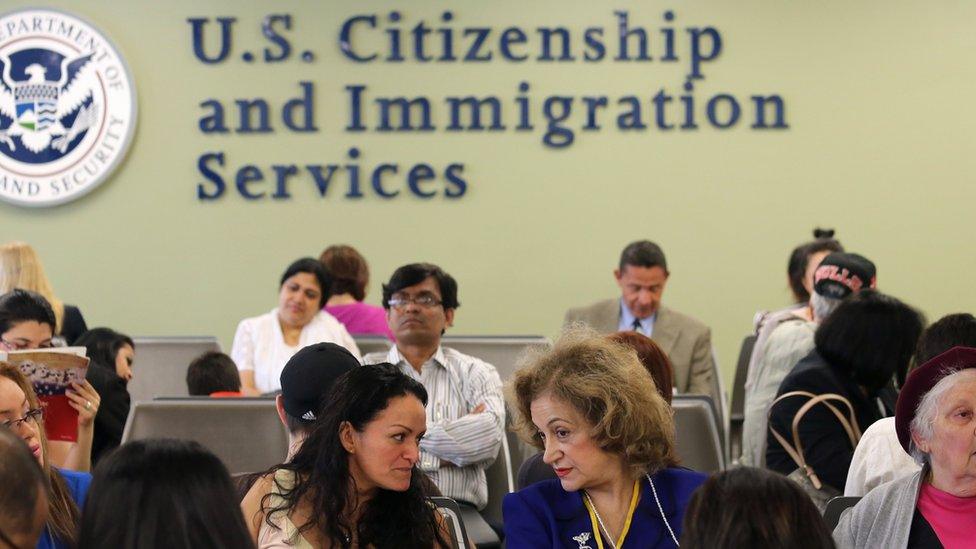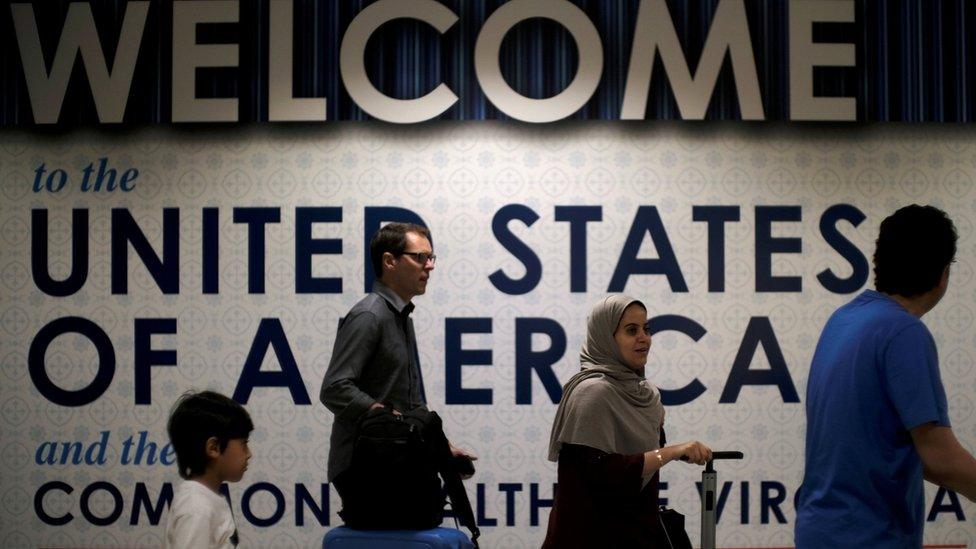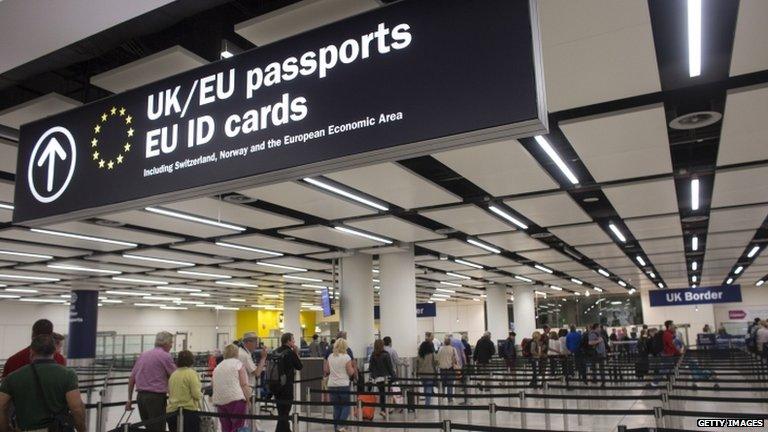US immigration proposals: What's in the Raise Act?
- Published

If they went through the proposals would change US immigration policy
US President Donald Trump has backed proposals for changes to the country's immigration law.
The changes in the Raise Act (the initials stand for Reforming American Immigration for Strong Employment) would attempt to reduce the number of legal immigrants by 50% over the next 10 years.
The proposals are a long way off being made law. They are likely to face resistance in Congress from Democrats and some Republicans.
Here is what is being proposed.
Number of green cards to be cut
This is the nickname commonly given to Permanent Residence Cards. They allow people over the age of 18 to live and work in the US and are currently given to more than a million people a year.
Under the proposals this number would be cut; green cards would be given to just over 500,000 people a year.
Employment-based green cards to become points-based
140,000 employment-based green cards are issued a year. At the moment people from outside the US can apply in three categories, external, with a top priority given to foreign nationals who have "extraordinary ability" in fields including science and athletics, or who are multinational managers or "outstanding" researchers.
This will change to a points-based system that considers factors including education levels, age and future salary, similar to the systems used in Canada and Australia.
Jon Donnison explains how does the points-based system works in Australia.
Mr Trump said the system would prioritise English speakers, and those who can support themselves and their families financially and demonstrate skills that contribute to the US economy.
Applicants would have to get at least 30 points, as judged by their:
highest educational qualification: 13 points for a US doctorate; one point for a US or foreign high school diploma
age: people over 50 would get no points, with younger people being judged on a sliding scale from two to 10 points
ability at English, as judged by a test
future salary: 13 points for a job offer that paid 300% of the median for their destination state
investments: 12 points for a $1.8 million investment in a US business
achievements: 15 points for an Olympic medal, 25 points for a Nobel prize
No welfare for new immigrants
New holders of green cards would not be eligible for any means-tested federal benefits for five years after arriving.
Restrictions on immigrants getting in through family connections
At present, people who have an extended family member living legally in the US are prioritised for green cards. If this set of proposals went through, that preference would be removed. The adult children of immigrants would not be prioritised anymore either.
Preference would instead be given to spouses and children under the age of 18.
One new measure would be created. If a US resident had a sick parent, that parent could be allowed to enter the US on a renewable five-year visa as long as the resident promised to be financially responsible for them.
Diversity visa program to be cut
Millions of people a year apply to this green card lottery, and 50,000 are successful. The diversity immigrant visa programme was started more than two decades ago by order of Congress. It is a way to get in to the US without having the family links or employment prospects required for the other methods.
To qualify for the lottery, one must:
be from a country that has had a low number of admissions over the past five years
have finished high school and have a job - more information here, external
Under these proposals, the programme would be completely scrapped.
Refugee numbers to be cut
Former President Barack Obama pledged before leaving office that he would admit 110,000 refugees a year.
The proposals would cut that number to 50,000.
What's not affected?
The draft law does not touch on seasonal visas for guest workers.
- Published3 August 2017

- Published3 August 2017

- Published1 June 2016
